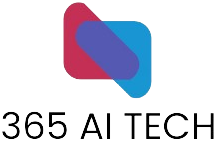Introduction: The Dawn of AI in Healthcare
The integration of Artificial Intelligence (AI) in healthcare is transforming the landscape of medical treatment, diagnostics, and patient care. This groundbreaking technology is not only enhancing the efficiency of healthcare providers but also improving patient outcomes, making it a pivotal moment in medical history.
The Transformative Power of AI in Healthcare
AI in Diagnostics and Patient Care
The advent of AI in healthcare has brought about a paradigm shift in diagnostics and patient care. With healthcare AI applications, medical professionals can now detect diseases with unprecedented accuracy and speed.
- AI for Patient Diagnosis: Leveraging deep learning, AI systems can analyze complex medical images, such as X-rays and MRIs, to identify diseases like cancer at their earliest stages.
- Personalized Patient Care: AI algorithms analyze patient data to recommend tailored treatment plans, ensuring personalized care for every individual.
AI-Driven Medical Research and Drug Development
AI healthcare solutions are not just limited to patient care; they extend to medical research and drug development, significantly reducing the time and cost associated with these processes.
- AI in Medical Research: By sifting through vast datasets, AI can uncover patterns and insights that might take humans years to discover.
- Artificial Intelligence Medical Advancements: In drug development, AI models predict how different drugs will react with the body, speeding up the discovery of new medications.
AI’s Role in Patient Experience and Healthcare Management
AI is redefining the patient experience by offering more accessible and personalized healthcare services.
- Healthcare Data Analysis AI: AI systems manage and analyze patient data, improving the efficiency of healthcare operations and reducing waiting times.
- Machine Learning in Medicine: These technologies adapt and learn from each interaction, continuously improving the services provided to patients.
Ethical Considerations and Challenges
While AI in healthcare promises numerous benefits, it also raises ethical considerations such as data privacy, security, and the need for transparent AI algorithms.
Real-World Success Stories: AI’s Impact in Action
To illustrate the AI-driven healthcare innovation, here are a few case studies:
- AI in Oncology: AI systems have been successfully used to detect early-stage cancers, significantly improving patient survival rates.
- AI in Chronic Disease Management: Wearable AI-powered devices monitor patient vitals in real-time, enabling proactive management of conditions like diabetes and heart disease.
The Future of AI in Healthcare: Trends and Predictions
The future of AI in healthcare looks promising, with advancements in AI technologies continuously reshaping healthcare services. From robotic-assisted surgeries to AI in genomics, the possibilities are endless.
Conclusion: Embracing AI for a Healthier Tomorrow
The integration of AI into healthcare is an exciting development that holds the potential to significantly enhance patient care, reduce costs, and improve the efficiency of healthcare services. As we move forward, the continued adoption and innovation of AI in healthcare will undoubtedly pave the way for a healthier tomorrow.

